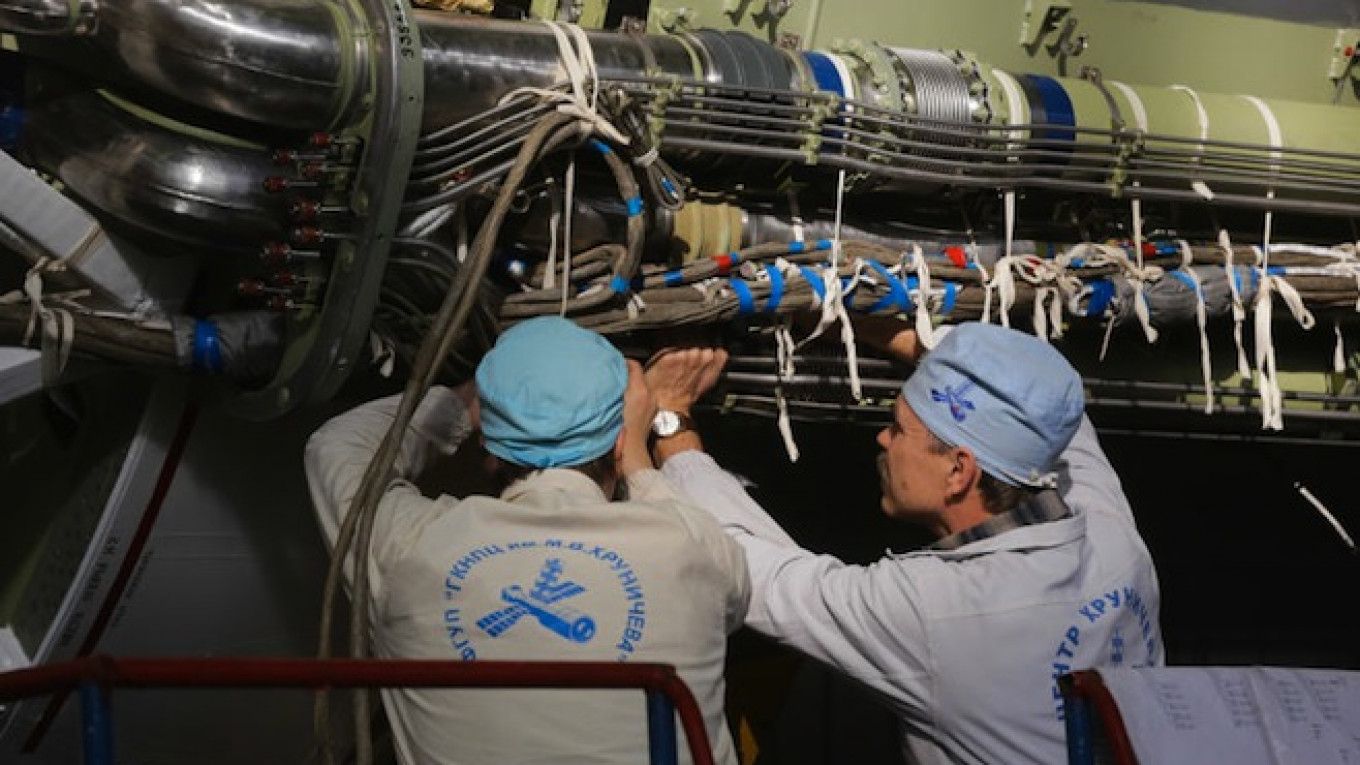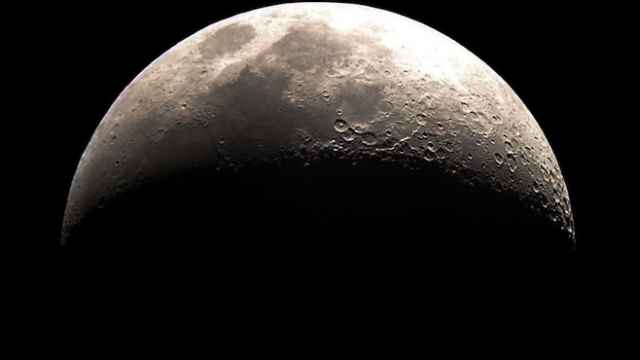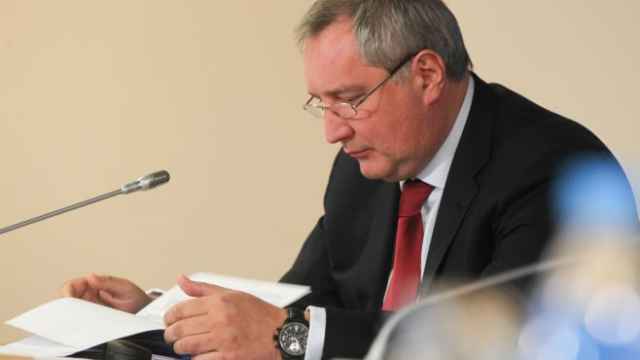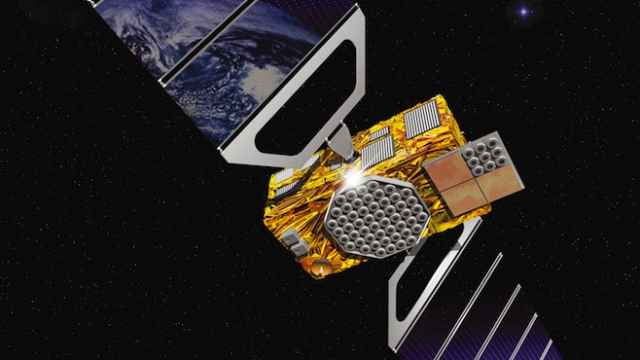President Vladimir Putin has instructed space industry officials to take measures to ensure Russia remains a major player in the commercial space launch market and in the field of manned spaceflight, the TASS news agency reported Thursday evening.
“Special attention needs to be directed in the course of [new space] programs at strengthening our positions in the spheres of manned spaceflight and in orbiting cargo, primarily in commercial launches,” Putin said at a meeting of space industry officials in Sochi on Thursday.
Russia — historically a leader in the field of spaceflight — has fallen on hard times since the fall of the Soviet Union. Though Russia has managed to stay afloat by selling rides aboard its hardy Soviet-designed rockets, its market share is threatened by the rise of U.S. commercial space companies.
Deputy Prime Minister Dmitry Rogozin, the Russian government's space czar, raised the alarm on Russia losing its 40 percent market share for commercial launches to American companies like Elon Musk's Spacex in May, warning drastic reform was needed to stay competitive.
Rising competition isn’t the only thing threatening Russia’s market share. Previously reliable rockets, like the Proton-M, in the last five years have been crashing at an astonishing rate, scaring away potential customers as Russian officials such as Rogozin increasingly describe the state of the space industry as a systemic crisis.
Putin doubled down on Rogozin's warning Wednesday, telling space officials that “Russian rockets must be reliable and competitive to meet all requirements [set] by leading customers both inside the country and abroad,” Putin said.
The meeting focused on hashing out details in a draft of Russia's upcoming Federal Space Program 2016-2025, a government outline of all Russian space activity and funding levels over the next decade. The program is a year late, and has been rewritten several times as Russia's economic crisis has forced space officials to re-evaluate what they can afford to do.
Putin said that beyond ensuring Russia's position in the space launch market is secure through 2025, the program should focus on restoring Russia's fleet of communications satellites, and to focus more on scientific research — an aspect of the space program that suffered most after the Soviet collapse.
Contact the author at m.bodner@imedia.ru
A Message from The Moscow Times:
Dear readers,
We are facing unprecedented challenges. Russia's Prosecutor General's Office has designated The Moscow Times as an "undesirable" organization, criminalizing our work and putting our staff at risk of prosecution. This follows our earlier unjust labeling as a "foreign agent."
These actions are direct attempts to silence independent journalism in Russia. The authorities claim our work "discredits the decisions of the Russian leadership." We see things differently: we strive to provide accurate, unbiased reporting on Russia.
We, the journalists of The Moscow Times, refuse to be silenced. But to continue our work, we need your help.
Your support, no matter how small, makes a world of difference. If you can, please support us monthly starting from just $2. It's quick to set up, and every contribution makes a significant impact.
By supporting The Moscow Times, you're defending open, independent journalism in the face of repression. Thank you for standing with us.
Remind me later.






